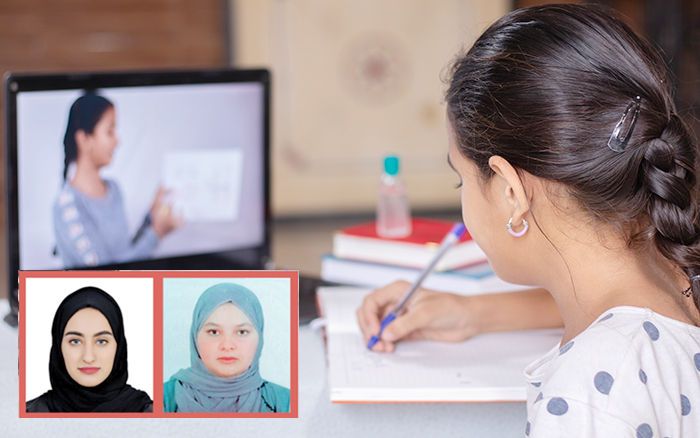
Muscat: Omani researchers have discovered that the efficacy of teaching methods adopted by universities during the COVID-19 pandemic was average at best, while learners were not satisfied with the support provided to them by their respective universities.
Research conducted by Manar Al Aisri and Miada Al Harthi from the University of Technology and Applied Sciences in Ibra, with the aid of their supervisor Dr Thuraya Al Riyami also found that other challenges, such as internet connectivity was not strong enough to handle the load of online learning, and the absence of a good atmosphere in which to study while at home also negatively affected learners’ experiences of online education.
The study, titled ‘Online Education During COVID-19 Outbreak – Colleges of Technology in Oman: Students’ Perceptions and Challenges’, was based on interviews and questionnaires consisting of 25 questions.
These were, said Miada Al Harthi, “related to studying the views of male and female students about the teaching materials, lecturers, assessment, the support provided by their university and the challenges they encountered during online education during the COVID-19 pandemic. The participants of the Study were 240 university students from different specialisations such as business, information technology, engineering, among others.”
Manar Al Aisri maintained, “The findings revealed that students’ evaluation of the effectiveness of teaching methods and distance assessment methods was average during the COVID-19 outbreak and that the students were not satisfied with the support provided to them by the university. Students encountered many challenges during their online education, such as weak internet connection and not having a good atmosphere at home to attend their online classes.”
To improve the quality of online education, Miada Al Harthi suggested providing distance education training courses for members of the academic bodies to train them into making distance education more interactive and use modern technologies to communicate with students so that they can interact with one another.
She also recommended that higher education institutions in Oman should continue e-learning even after the end of the pandemic, and that they should continue spreading electronic culture among students and members of the academic staff and improving the way practical courses are delivered by providing virtual resources and equipment that enable students to acquire practical skills such as online laboratory demonstrations and 3D virtual tools to mimic an actual situation.
Also recommended was quick development of infrastructure of higher education institutions, removing human, material and technical obstacles that prevent students from getting the advantages of online education and conducting more studies and research to find out the effectiveness of online education besides holding conferences and seminars for the development of online education.